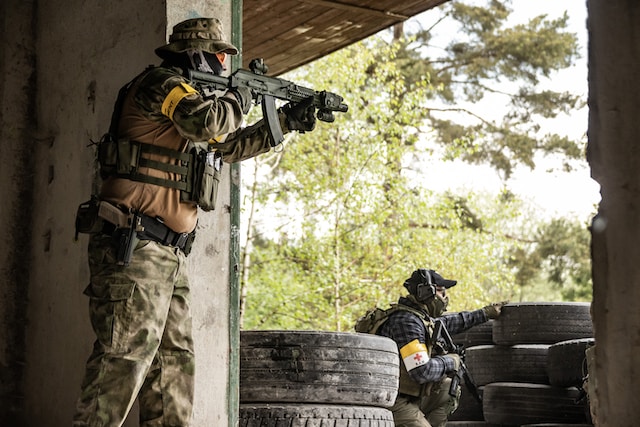For his award-winning documentary The Fog of War, an exploration of the moral complexities of war and those who wage it, Errol Morris found the perfect subject in Robert S. McNamara, the man who was Secretary of Defense in the early days of the Vietnam War. McNamara is insightful, articulate, lively and thoughtful, and as a grizzled 85-year-old man, he is able to look back on the events of his life with the kind of analytical clarity and sober judgment that only old age can bring.
Wisely, Morris lets McNamara speak for himself, providing very little in the way of poking and prodding as interviewer and director. McNamara looks at his long and varied career through the lens of eleven lessons he has learned about life and human nature. Each of these revelations is related to a specific chapter of his career and life. We see McNamara take stock of his actions in connection with World War II, the Cuban Missile Crisis, and of course the Vietnam War, in each case reflecting aloud on the moral imperatives and ethical decisions he faced on a daily basis as his decisive role in all of these events played itself out. Some may consider his comments to be somewhat egotistical, an attempt to whitewash the facts and downplay his own responsibility, especially with regard to his involvement in the Vietnam War. yet, in many instances, McNamara accepts the verdicts of history and admits his culpability, even if he usually does so in the broader context of “war is a necessary evil.” There are moments during his recollections when McNamara actually breaks down in tears, thinking about the enormous loss of life and personal tragedy that inevitably results from man’s insane obsession with the destruction of his fellow man – while at the same time always recognizing that sometimes war must be fought and the losses incurred for a greater purpose. Throughout the film, McNamara returns to this refrain, further warning us that in the nuclear age in which we live, the human propensity for war can very easily take us over the cliff to global devastation and destruction as a species. We have little reason to believe that McNamara is not sincere in his comments, although some more cynical viewers may wonder if he is not simply saying what he thinks he has to say to ensure a better reputation and image for himself as his life draws to a close. If this is indeed the case, Morris just seems to be unaware of it, as he basically takes McNamara’s statements at face value. As an added-and perhaps unintended-bonus, much of what McNamara says has a pertinent, timely, almost prophetic ring to it as the U.S. grapples with yet another foreign engagement, this time in Iraq. as he basically takes McNamara’s statements at face value. As an added – and perhaps unintended – bonus, much of what McNamara says has a pertinent, timely, almost prophetic ring to it as the U.S. grapples with yet another foreign engagement, this time in Iraq. as he largely accepts McNamara’s statements at face value. As an added-and perhaps unintended-bonus, much of what McNamara says has a pertinent, timely, almost prophetic ring to it as the U.S. grapples with yet another foreign engagement, this time in Iraq.
As a documentary filmmaker, Morris demonstrates his usual skill at combining archival footage with personal interviews to bring his subject to life. The caveat here is that Morris does not provide any opposing voices to challenge any of McNamara’s claims or his interpretation of events. However, as McNamara tells his life story, a fascinating history of 20th century American foreign policy emerges in the background. We see many of the iconic figures of McNamara’s time play out their roles in history and their destinies, from John F. Kennedy to Lyndon Johnson to Nikita Khrushchev to a host of other key players on the world stage. In addition, Philip Glass and John Kusiak have composed a riveting score to complement the breathtaking images.



